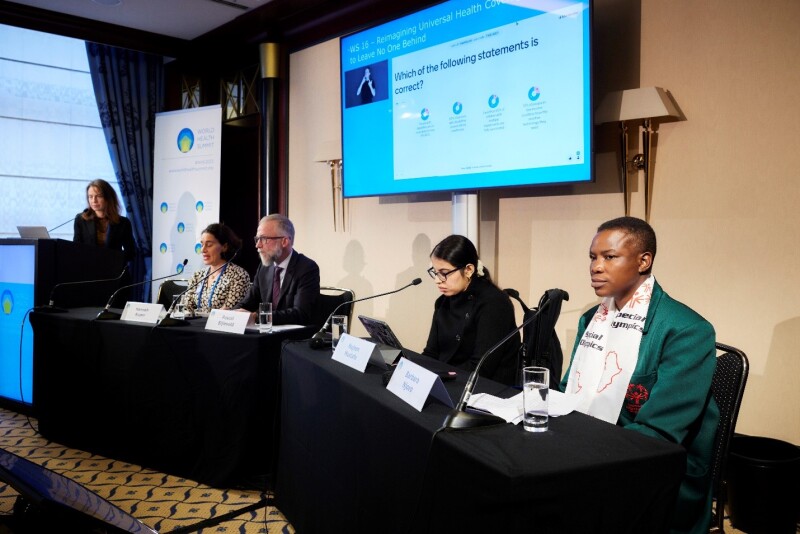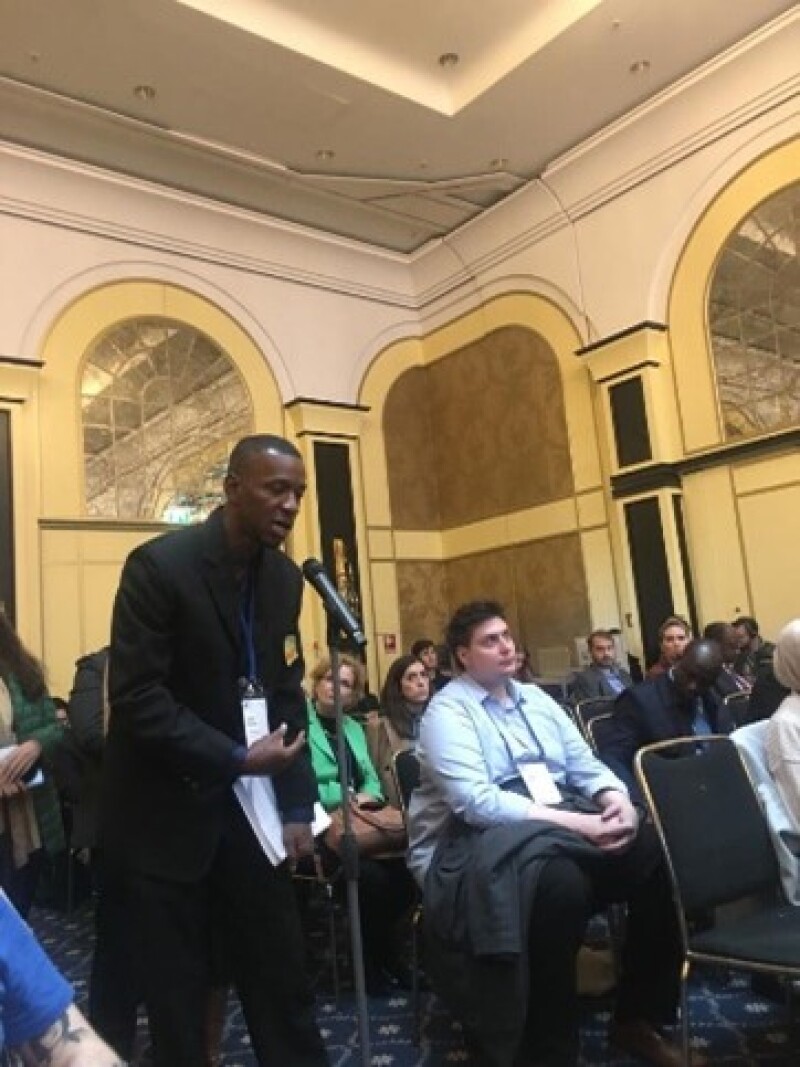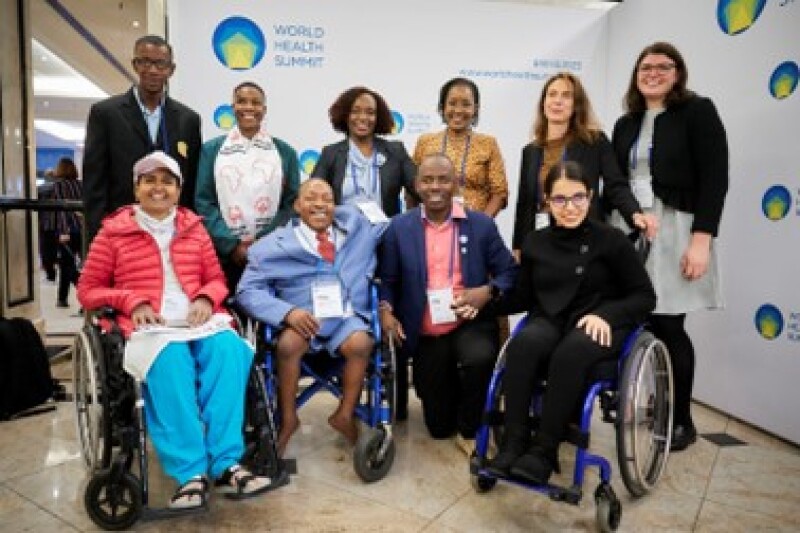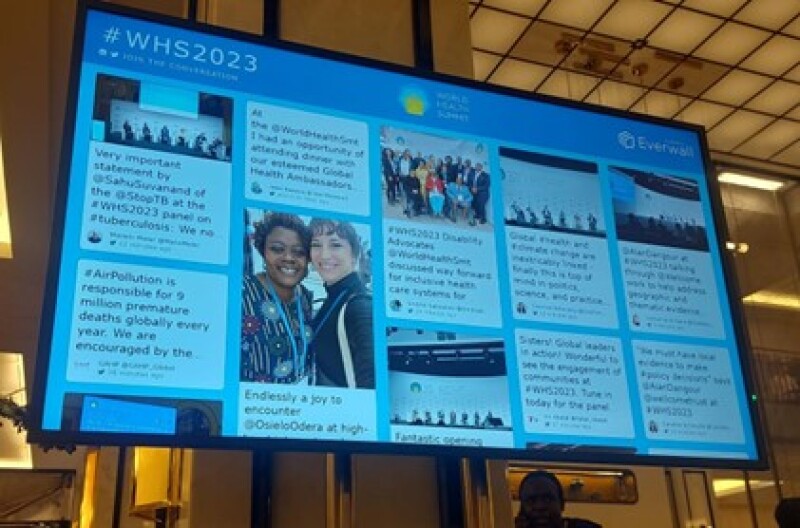Video credit : HauptBruch Film- und Fernsehproduktion GbR
Special Olympics, as part of a disability-inclusive health consortium that included ATScale, the Global Partnership for Assistive Technology, CBM Christian Blind Mission, Clinton Health Access Initiative, Deutsche Gesellschaft für Internationale Zusammenarbeit (GIZ), and Missing Billion Initiative, made a strong impression at the recent World Health Summit (WHS) held in Berlin earlier this week. One of the world’s premiere global health events, the WHS enjoys high-level attendance—from global health players, like the World Health Organization, to national governments, to civil society.

Special Olympics Health Messengers Barbara Njovo (Special Olympics Zimbabwe) and David Duncan (Special Olympics Jamaica) were two members of a delegation of seven self-advocates with disabilities, mostly from countries in the southern part of the globe, hosted at the WHS by the disability-inclusive health consortium. Collectively, the delegation raised the considerations and demands of people with disabilities in numerous sessions across the WHS, asking crucial questions about healthcare worker competencies to work with this population, highlighting the importance of a primary healthcare approach to make health service reach people with disabilities, and pointing out the need to consider access to and accessibility of digital health to not leave people behind. The delegation’s presence highlighted the call for “nothing about us without us.”

The consortium also co-hosted a World Health Summit session that spotlighted how disability-inclusive health and access to assistive technology are essential for achieving universal health coverage. During the session, Special Olympics Zimbabwe Health Messenger Barbara Njovo delivered compelling remarks, showcasing positive practices in healthcare accessibility for individuals with disabilities. She shared her vision for improved accessibility, which included advocating for reusable Assisted Medical Treatment Order (AMTO) cards that allow for people with disabilities and the elderly to access care quickly, easily, and at low cost, and training healthcare workers to understand the unique needs of individuals with disabilities. Barbara’s inspiring words underscored the importance of empowering individuals to self-advocate and participate in making their human right to health a reality.
Looking ahead, we are excited to continue our efforts in raising awareness and advocating for disability-inclusive health at next year's WHS. Together, we can amplify our voices and bring about positive change for all individuals, regardless of their abilities.











